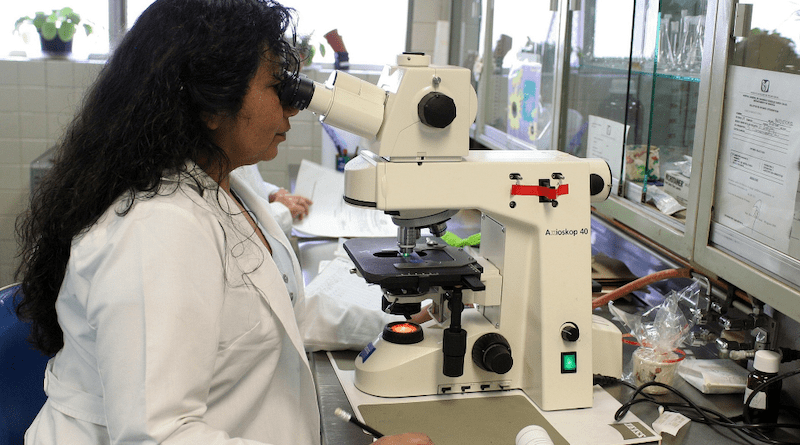Long-Term Funding Needed To Nurture African Science
By Jackie Opara
Accelerating investment in science will equip Africa to address challenges faced by local communities and prevent an exodus of talent from the continent, says Thomas Kariuki, executive director of the Science for Africa (SFA) foundation.
According to Kariuki, investment in African science research had picked up before COVID-19, but took a blow from the pandemic. While increased collaboration between African countries has led to more scientific research in many countries, the overall output from the region remains low, he tells SciDev.Net.
Kariuki firmly believes Africa needs science innovation that can solve the challenges plaguing the continent, such as infectious diseases and food insecurity, and that funding for this is crucial.
“The continent is still stuck in some place where we feel strongly that science and innovation can address those challenges,” he says.
Last month, the SFA foundation, a non-profit organisation which works with local and global partners to grow the continent’s research and development sector, launched the second phase of its programme, Developing Excellence in Leadership, Training, and Science in Africa (DELTAS Africa). “DELTAS Africa is addressing how science can solve economic, health, food security, and climate change challenges.”
Thomas Kariuki, SFA Foundation
“As a pan-African organisation, the SFA Foundation wanted to make sure we are not leaving some people behind so we can together fast-track Africa’s growth, as well as create an enabling environment for scientists to work and thrive,” explains Kariuki.
The programme which supports14 grantees, aims to promote science and innovation in Africa and strengthen African institutions.
DELTAS Africa was created to address how science can solve economic, health, food security, and climate change challenges,” says Kariuki.
“The first thing we emphasise to the scientists is the need to go into the communities.[sdn-related-article max_articles=”3″]
“The communities themselves know best where the challenges are, so we start from there and now get people who can bring this out even more forcefully, so we can together identify and define scientific priorities to enable investment for impact for communities.”
Kariuki believes the SFA has a responsibility to uphold African science and research and to build a sustainable research funding landscape through its programmes, including DELTAS Africa and Grand Challenges Africa.
“The SFA Foundation is standing in Africa, but we are anchored globally,” he adds.
Our goal is to continue to work with scientists in Africa to come up with high-quality research and scientific solutions to achieve the Africa we want.”
The first phase of DELTAS Africa was a US$100 million investment supported by the African Union Development Agency, UK-based health research foundation Wellcome, and the UK Foreign Commonwealth and Development Office (FCDO). This phase funded 11 consortia in 54 institutions across 24 countries.
The SFA Foundation is now implementing the second phase of the DELTAS Africa programme with continued support from Wellcome and the FCDO.
Kariuki tells SciDev.Net that DELTAS Africa is helping to stem the exodus of scientists from Africa by recruiting the best young African scientists globally and creating an enabling environment for them to work in Africa with the resources needed to solve the continent’s challenges.
He highlights the need for African governments to make long-term plans, such as sustainable research funding pipelines, to encourage young scientists to stay on the continent to work.
Failure to create long-term opportunities could make young people “pack their bags again and go back [to the global North]”, he warns.
DELTAS Africa II, a US$70 million investment being implemented from 2023 to 2026, has 14 consortia, spread across Côte d’Ivoire, Ethiopia, Ghana, Kenya, Mali, Senegal, South Africa, Tunisia and Zimbabwe and involving 75 institutions across the globe, including 57 in Africa.
The project supports research to tackle the problems of local communities, focusing on diversity, gender equity and inclusion. Through collaboration, it aims to bridge the gap between science and policymakers.
Jackie Opara writes for SciDev.net
This piece was produced by SciDev.Net’s Sub-Saharan Africa English desk.

